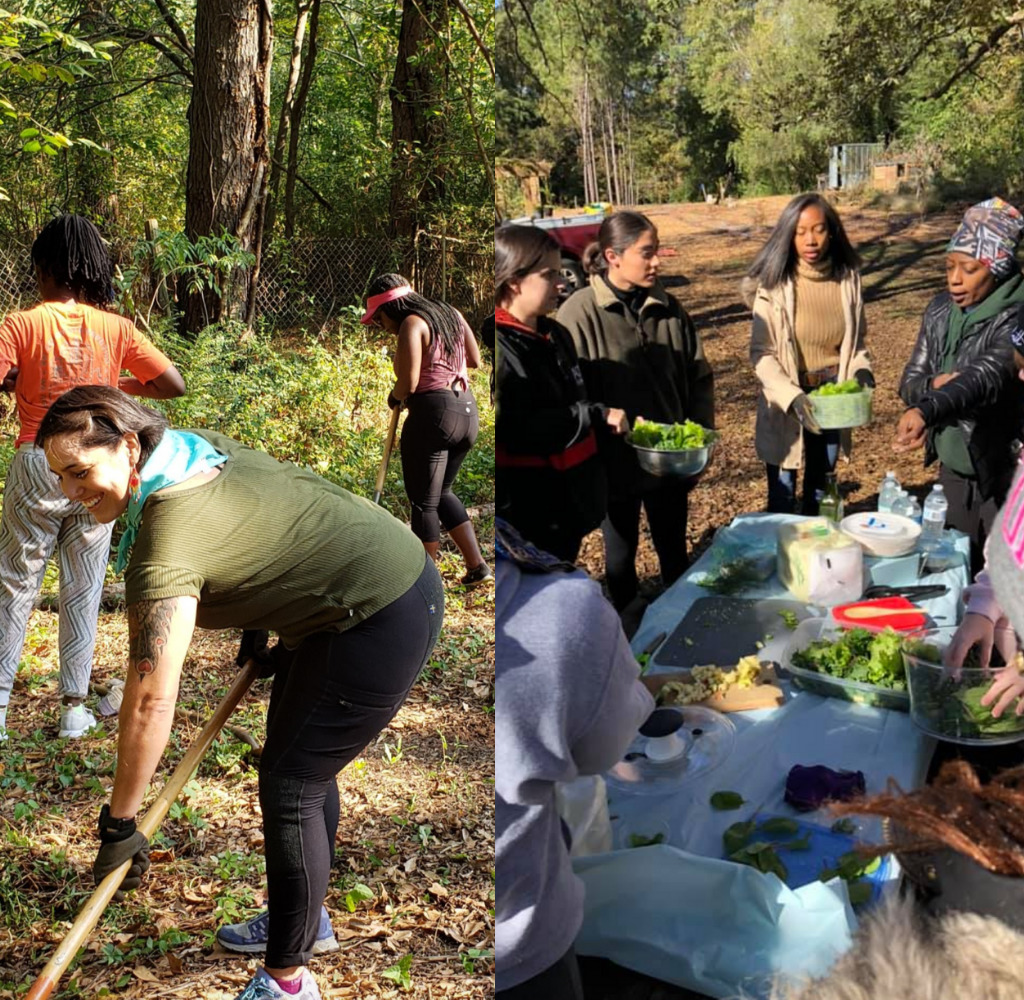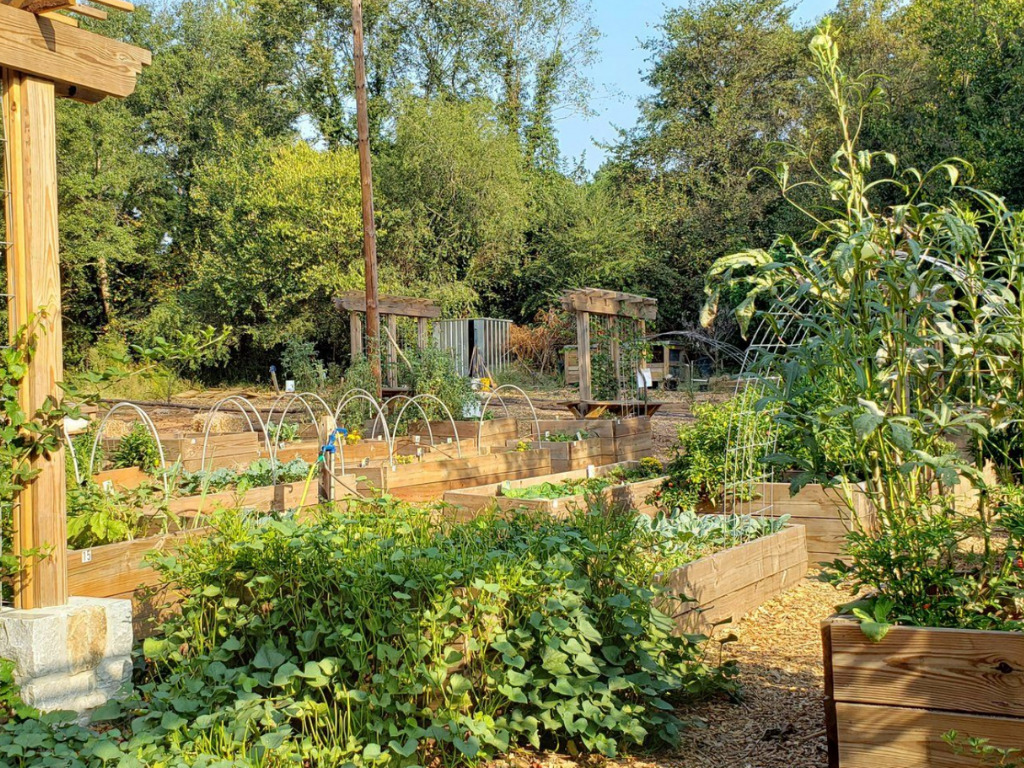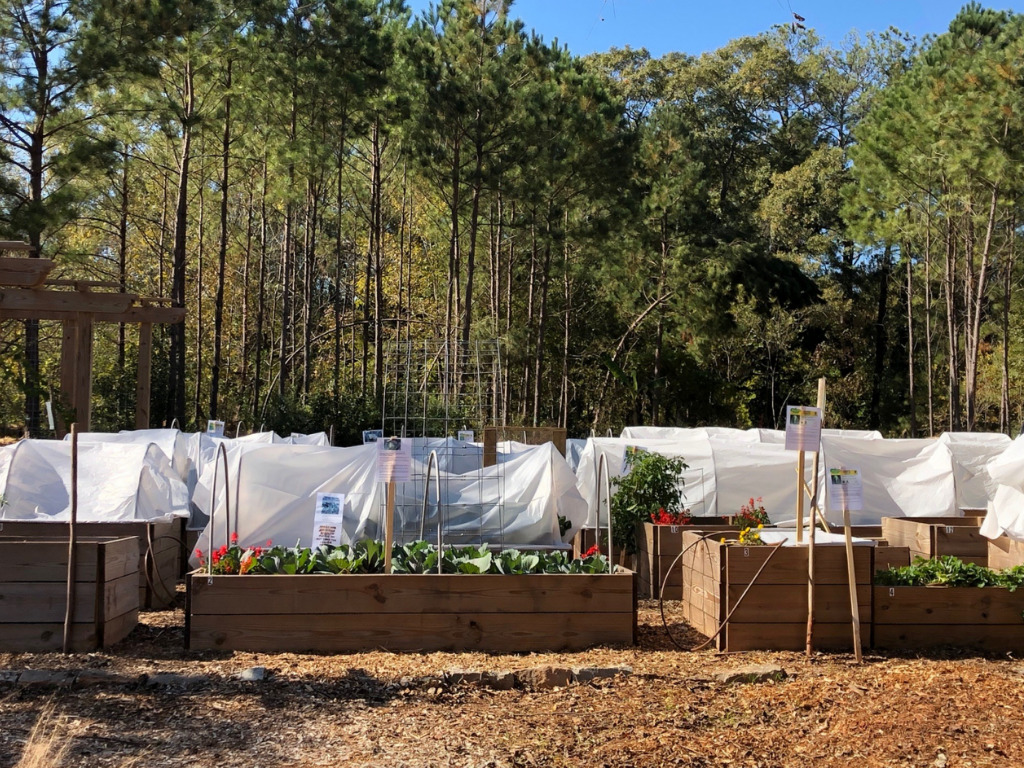3 Mins Read
Atlanta’s seven-acre farm, where anyone can just enter and pick up fruits and vegetables, is fighting hunger and tackling food insecurity.
Estimated to be the largest free food forest in the U.S., the city-owned Food Forest at Browns Mill has been set up with the help of the Conservation Fund that helps convert areas into green spaces.
Previously, this seven-acre farm was a pecan farm that still has mature pecan trees and blackberry brambles, and apart from the fruits and vegetables, the forest also holds around 2,500 edible and medicinal plants for anyone to put it to use.
A USDA’s Food Access Research Atlas showed that 25 percent of people living in Atlanta resided in areas classified as food deserts due to the vast geographical distance between them and grocery shops.
However, with this new forest, the 2,100 residents that live around the area, can visit this place by just taking a 30-minute bus ride.
In an interview with CNN, certified local arborist and expert edible landscaper who assists in managing the forest Michael McCord said: “Access to green space and healthy foods is very important. And that’s a part of our mission.”

Access to green space and healthy foods is very important. And that’s a part of our mission
Michael McCord, co-manages the forest
The forest was developed using permaculture, and more specifically ‘agroforestry’ practices. According to the Agroforestry Research Trust, an agroforestry system has several benefits from preventing soil erosion, to reducing wastage of water, soil material as well as nutrients thus having a positive impact on the environment. During this process, spaces were created under the trees for crops to grow. Apart from this, bushes that weren’t needed were replaced by crops. To make this possible, the community, corporates as well as non-profits committed over 1,000 volunteers.
Atlanta city councilwoman Carla Smith said that the forest is actually a park for everyone. “Every time I go there’s a community there who respects and appreciates the fresh healthy foods. There’s a mentality there that people know to only take what they need.”
The leftovers are harvested and distributed ensuring that there is zero resulting food waste. To further educate the community about healthy food, gardening and cooking classes are conducted and visitors can make use of garden beds.

Every time I go there’s a community there who respects and appreciates the fresh healthy foods. There’s a mentality there that people know to only take what they need
Carla Smith, councilwoman of Atlanta city
Going ahead, the plans for the forest include mycelium cultivation for edible mushrooms and an apiary to produce honey.
At the moment, the U.S. has around 70 similar forests in an effort to restore the balance of the broken food chain and provide accessible healthy plant-based food to all citizens that are struggling in food desert areas.
Another estimate by The Food Empowerment Project shows that 750,000 New Yorkers reside in food deserts with hardly any access to a grocery shop, and a further 3 million New York citizens live miles away from shops that sell fresh produce.
Recently, in another part of U.S., food blogger Erick Castro set up ‘Plantega’, a company that installs vegan fridges in Brooklyn bodegas in an effort to provide plant-based options to communities where again there are hardly any healthy food options.
In Las Vegas, a food bank recently opened to offer healthy vegan grocery boxes to those who can’t afford these options or don’t have similar stores near their homes. Through this bank, every two weeks, people in need receive pastas, rice, beans, and much more.
Lead image courtesy of Urban Food Forest At Browns Mill.




